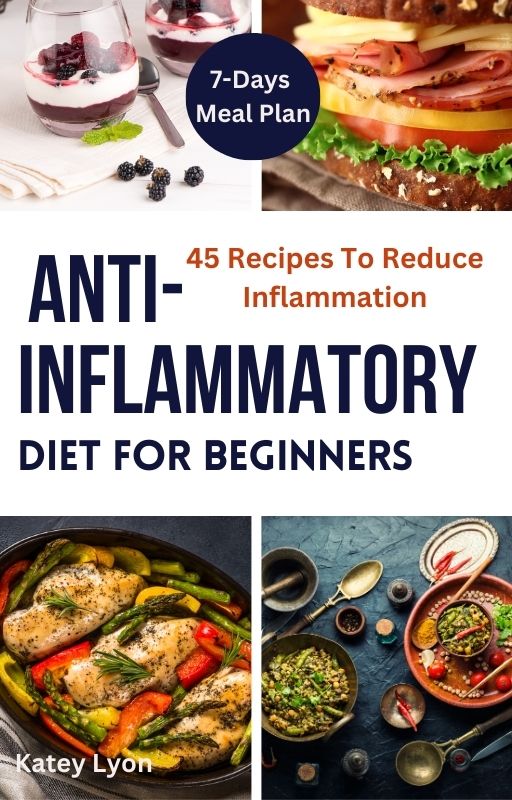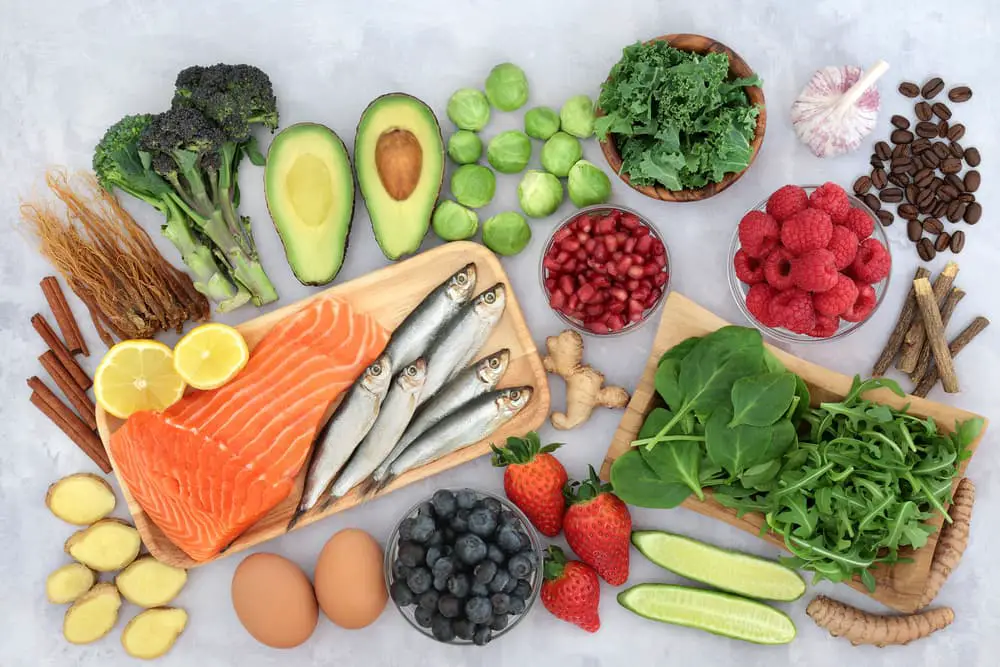Can You Eat Eggs on an Anti-Inflammatory Diet? What You Need to Know
Genetics can play a role in chronic inflammation; however, what usually causes inflammation is diet and lifestyle habits. Some of the main causes of inflammation are:
- Reliance on processed foods and refined carbohydrates
- Too much meat, pork, eggs, dairy, and poultry
- Excess consumption of sugar
- Not enough anti-inflammatory foods like vegetables, avocados, fish, olives, legumes, seeds, and nuts.
- Smoking
- Elevated stress
- Lack of regular exercise
The anti-inflammatory diet is a Mediterranean-style diet with plenty of healthy oils, fish, legumes, vegetables, and fruits. Therefore, to avoid inflammation, one must focus on diet and lifestyle.
When choosing eggs for an anti-inflammatory diet, it is essential to consider the egg preparation methods and the individual’s sensitivities.
Are eggs ok on an anti-inflammatory diet? Generally speaking, eggs can be consumed in an anti-inflammatory diet; they are very nutritious and contain phospholipids, lutein, and zeaxanthin, which may help reduce inflammation.
Eggs are a source of Vitamin D, which is anti-inflammatory and helps lower inflammation in conditions like rheumatoid arthritis.
Eggs Nutrition Facts
According to WebMed
Nutrients per serving
One large, hard-boiled egg (one serving) contains:
- Calories: 72
- Total Fat: 5 grams
- Saturated fat: 1.6 grams
- Cholesterol: 206 milligrams
- Sodium: 65 mg
- Carbohydrates: 0.5 gram
- Sugar: 0.1 gram
- Protein: 6 grams
Hard-boiled eggs are also a source of vitamin A, vitamin D, calcium, and iron.
Health Benefits Of Eating Eggs

Very Nourishing
Almost every nutrient you require is present in whole eggs, making them a nutrient-dense food. They are good suppliers of several more difficult-to-find minerals, such as vitamins D and B12 and minerals iodine. Because they contain all nine of the essential amino acids that we need to get from our diet, eggs are regarded as a “complete” source of protein.
Furthermore, you’ll benefit from higher omega-3 fatty acids and fat-soluble vitamins like vitamins A and E if you choose brands that are loaded with omega-3 fatty acids because of the food the chickens are fed.
Could benefit heart health
Betaine and choline, are two substances that are abundant in eggs and support heart function. A study involving around 500,000 people found that one egg per day consumption has been linked to a lower risk of heart disease and stroke in China, but doctors emphasize that this is only true if eggs are consumed as part of a balanced lifestyle.
Choline’s Source
One of the best food sources of choline is eggs. We all require this little-discussed nutrient for the development of cell membranes and for proper brain function, including memory. It’s particularly crucial during pregnancy and breastfeeding when choline supplies must be adequate for healthy brain growth.
Could promote eye Health
While it is common for vision to decrease with age and with a balanced diet, certain helpful substances can help. It may contribute to eye health. One example of an eye-friendly food is eggs. The yolk is rich in carotenes, especially lutein and zeaxanthin, which are crucial for protecting against cataracts and macular degeneration. Additionally, eggs contain vitamin A, which is essential for healthy vision.
Could aid in weight management
Protein, which is more satisfying than either fat or carbohydrates, is abundant in eggs. Eggs are a good dietary option since they rank well on the satiety index, which gauges how satisfying an item is. Studies suggest that an egg breakfast is more filling than a comparable calorie-counted carb breakfast and may even help you consume fewer calories later in the day.
How to Cook Eggs to Reduce Inflammation
Eggs must be cooked appropriately to eliminate dangerous bacteria while not being overcooked to the point that the nutrients they contain are harmed, as is the case with most foods.
More than half a billion eggs were recalled in 2010 because of salmonella outbreaks, reports NutritionFacts.org. Because of this, there are already tight rules governing how to prepare and preserve eggs.
According to The Egg Safety Centre, egg safety begins with egg shopping. Check for any cracks or leaking eggs as you open the carton. Use your eggs within three weeks of the sell-by date, which may be found on the package.
Inflammatory foods to avoid
To lower joint swelling and never-ending inflammation overall, the following are foods to avoid
Bread
Bagels
Donuts
Pastries
Buns
Pasta
Tortillas
Fried foods of all types
Candy
Desserts
Cookies
Condiments and dressings
Beverages
Most alcoholic drinks
5 anti-inflammatory recipes with eggs
Vegetable Frittata

Ingredients
- 6 eggs
- 1 cup of spinach
- 1 red bell pepper, chopped
- 1/2 onion, chopped
- 1/4 teaspoon turmeric
- Salt and pepper to taste
- 1 tablespoon olive oil
Instructions:
Preheat the oven to 350°F.
In a bowl, whisk the eggs with turmeric, salt, and pepper.
In a skillet, heat the olive oil over medium heat.
Add the chopped onion and red bell pepper and sauté until softened.
Add the spinach and cook until wilted.
Pour the egg mixture over the vegetables and cook until the edges start to set.
Transfer the skillet to the oven and bake for 10-15 minutes or until the eggs are set.
Avocado Egg Salad

Ingredients
- 4 hard-boiled eggs, cut in half
- 1 avocado, cut in pieces
- 1 tablespoon lemon juice
- 1/4 cup bacon cut in pieces
- 1/4 cup cut lettuce for salad
- 1/4 cup cherry tomatoes cut in half
- 1/4 teaspoon garlic powder
- Salt and pepper to taste
Instructions:
In a bowl, mix the eggs, avocado and lemon juice.
Add tomatoes, lettuce, bacon and garlic powder, salt, and pepper.
Mix until well combined.
Serve r with gluten-free crackers.
Scrambled Eggs with Veggies

Ingredients
- 4 eggs
- 1/2 cup spinach
- 1/2 cup diced bell pepper
- 1/2 cup diced onion
- 1 tablespoon olive oil
- Salt and pepper to taste
Instructions
In a skillet, heat the olive oil over medium heat.
Add diced zucchini, bell pepper, and onion and sauté until softened.
In a bowl, whisk the eggs with salt and pepper.
Pour the eggs over the vegetables and scramble until cooked through.
Serve hot with a side of sliced avocado.
Broccoli and Cheese Omelet

Ingredients
- 4 eggs
- 1 cup chopped broccoli
- 1/4 cup shredded cheddar cheese
- 1 tablespoon olive oil
- Salt and pepper to taste
Instructions
In a skillet, heat the olive oil over medium heat.
Add chopped broccoli and sauté until tender.
In a bowl, whisk the eggs with salt and pepper.
Pour the eggs over the broccoli and sprinkle with shredded cheese.
Cover the skillet and cook until the eggs are set and the cheese is melted.
Serve hot with a side of sliced tomato.
Egg and Vegetable Stir-Fry

Ingredients
- 4 eggs
- 2 cup of frozen Asian Style Stir Fry
- 1/2 cup chopped onion
- 1 tablespoon coconut oil
- 1 tablespoon tamari sauce
- Salt and pepper to taste
Instructions
In a skillet, heat the coconut oil over medium heat.
Add the Asian Style Stir Fry and onion and sauté until tender.
In a bowl, whisk the eggs with tamari sauce, salt, and pepper.
Pour the egg mixture over the vegetables and stir-fry until cooked through.
Serve hot with a side of brown rice or quinoa.











